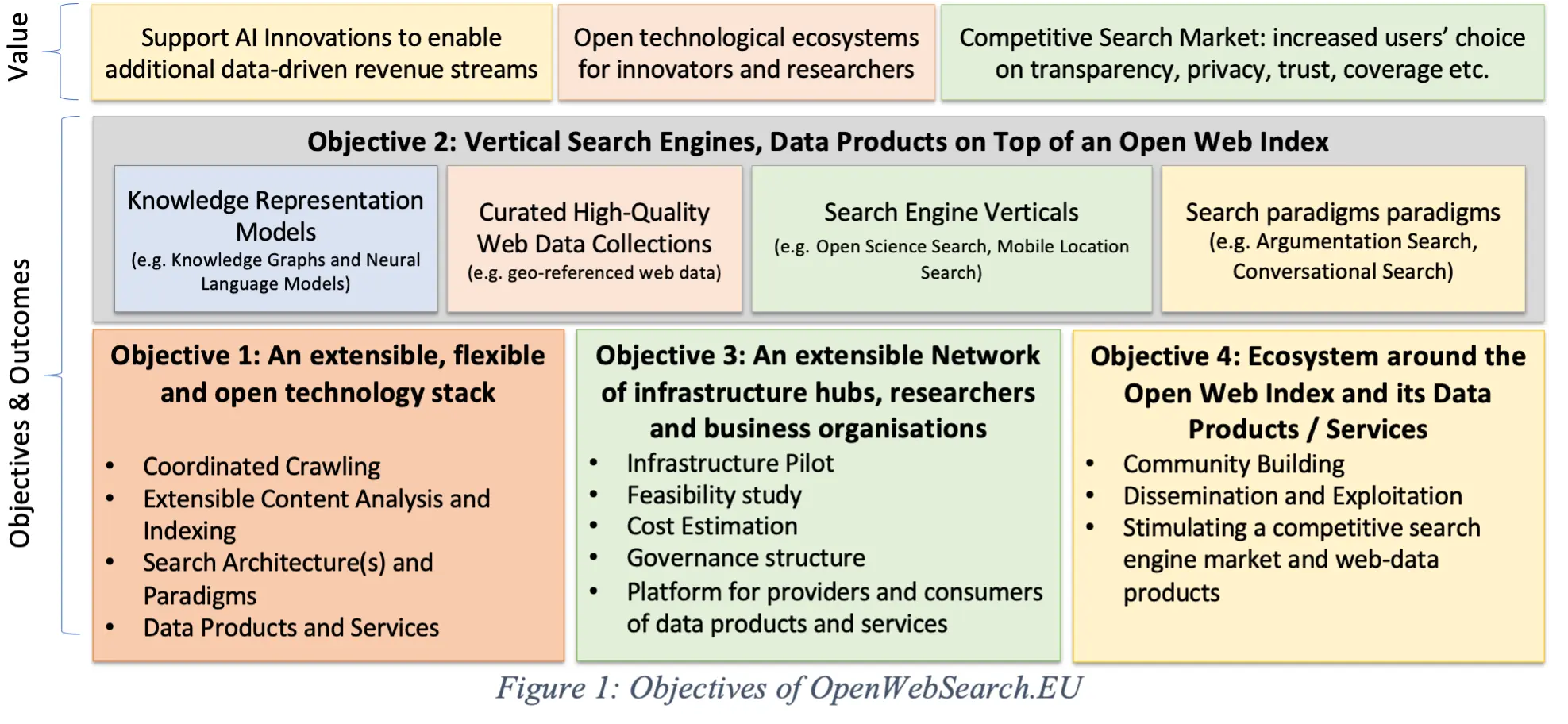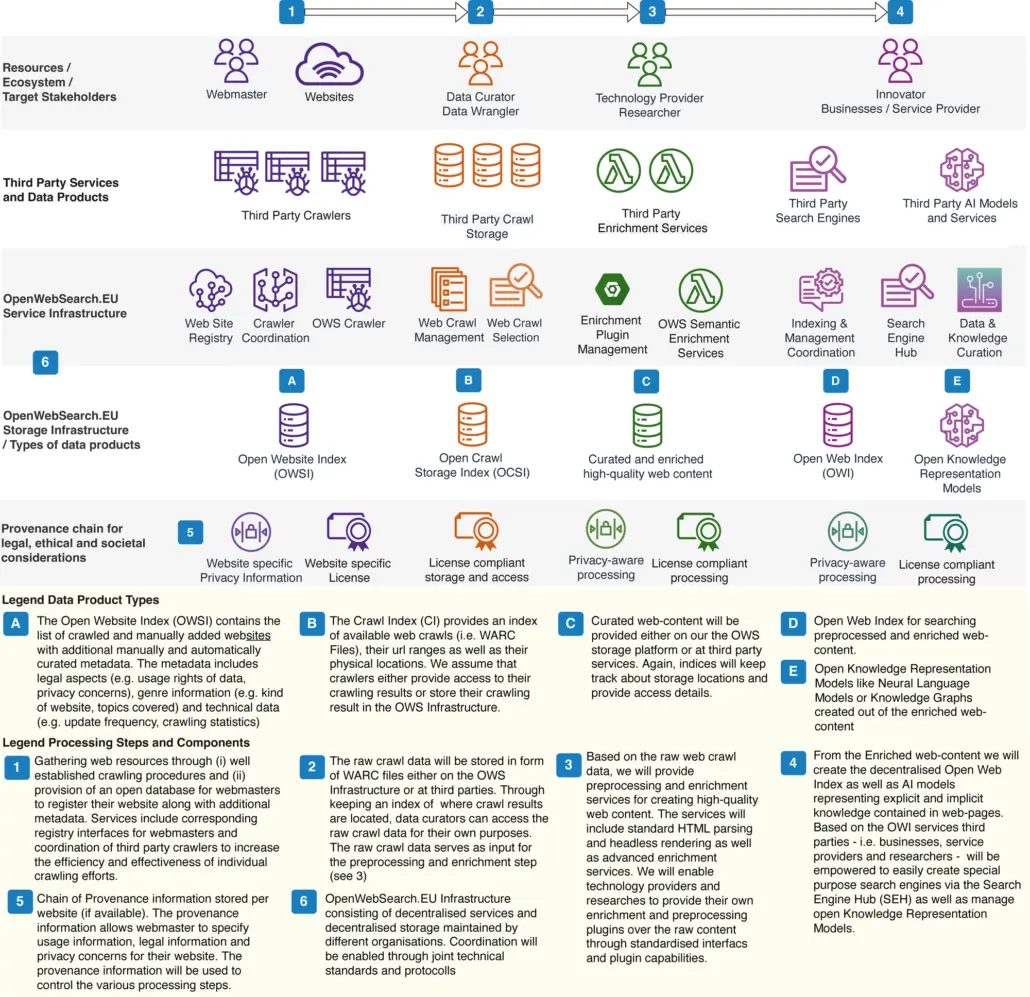Fourteen research and computing centers in seven EU countries have collaborated to launch the OpenWebSearch project to build an open infrastructure for Web search in the EU. The European Commission has now approved €8.5 million in funding for the project.

The project will promote the development of digital sovereignty in Europe and foster the creation of a people-centric and open search engine marketplace. openWebSearch’s homepage states that although Web search is the backbone of the EU’s digital economy, it is currently dominated by large technology companies. Therefore, information as a public good needs to have free, fair and transparent access. The current unbalanced state of the search engine market endangers democracy and limits the innovation potential of the European research sector and economy.

Over the next three years, researchers will develop the core European Open Web Index (OWI) as the infrastructure for a new European Internet search. In addition, the project will lay the foundation for an open and scalable European Open Web Search and Analysis Infrastructure (OWSAI) based on European values, principles, legislation and standards, encompassing the following objectives.
- develop a core set of search, discovery and analytics services to create, maintain and leverage the OWI
- develop relevant search engine verticals and new search paradigms that demonstrate their impact
- establish a European network of HPC infrastructure, research and business organizations to pilot the OWSAI in accordance with European values, principles, legislation, ethics and standards
- improve the ecology around OWI

As a result, OpenWebSearch’s indexing will be separate from the search engine, and the expensive process of creating the index can be done on a large cluster while the search engine can be executed locally. Through the Open-Web-Search Engine Hub, anyone can share their search engine specifications and indexes that are expected to be updated regularly. The ultimate goal is to create a human-centric search without privacy issues.
